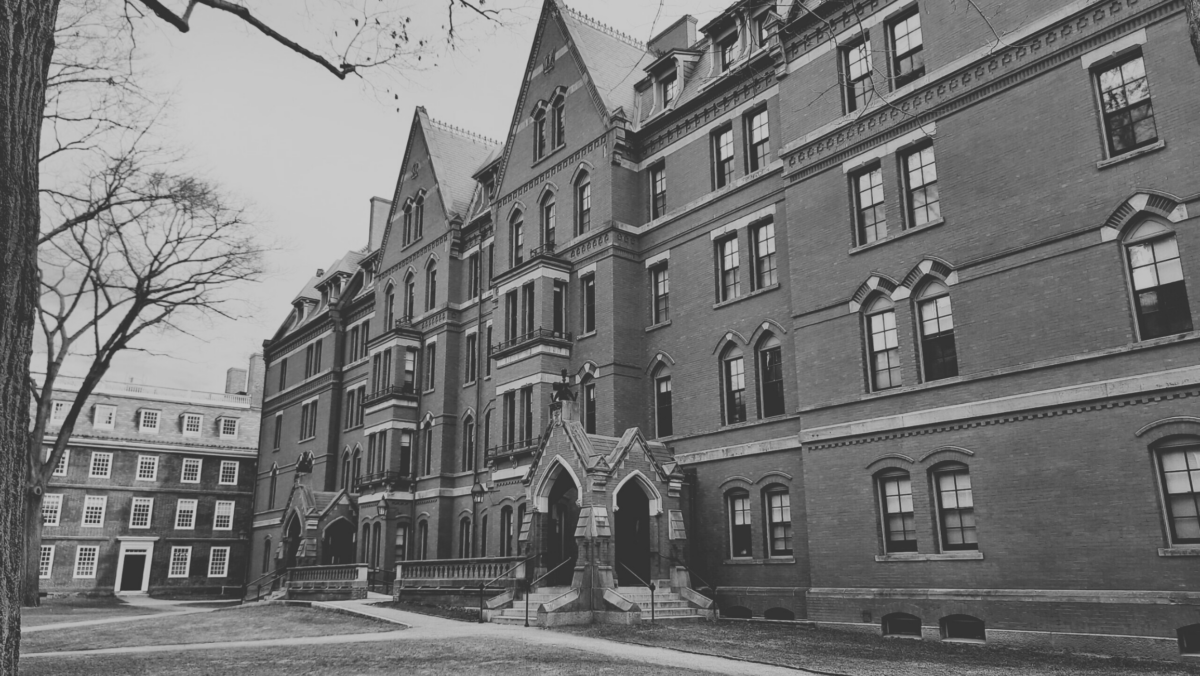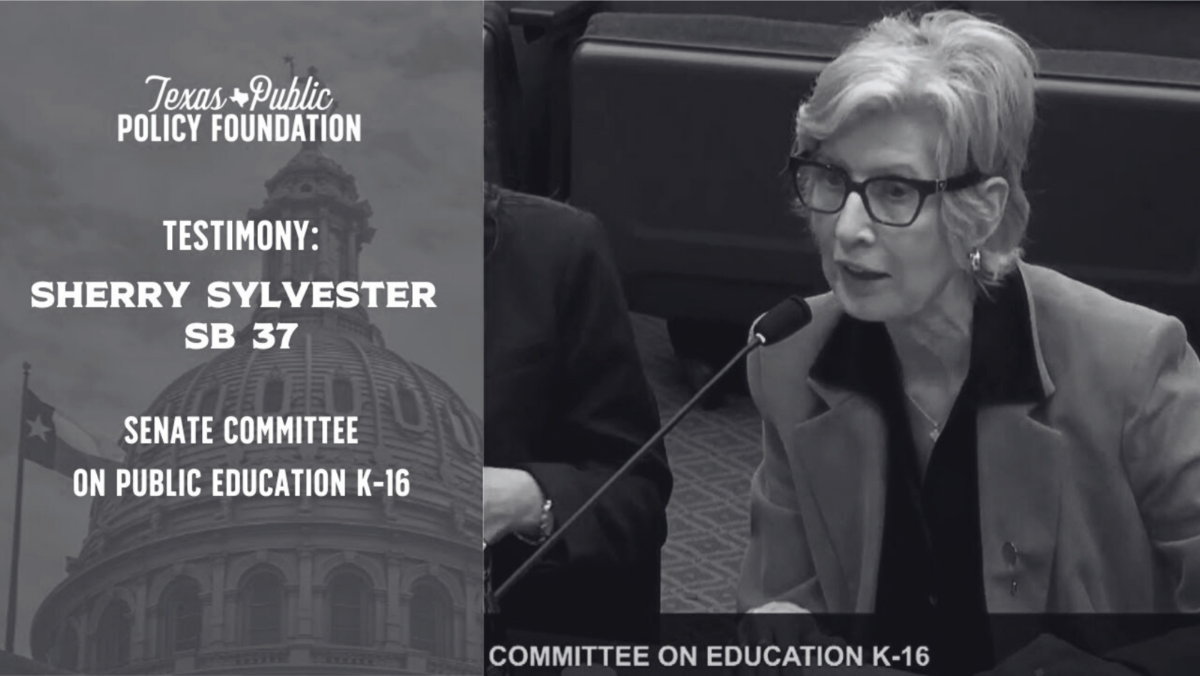Every Friday morning I join the Cardle & Woolley Show on 1370 Talk Radio in Austin to announce the week’s Winners & Losers. March and the President blew in like a lion. Here’s who made the list:
Winner: Trump’s First Speech to Congress
One thing that was clear from President Donald Trump’s first speech to a joint session of Congress on Tuesday is that the president understands the American people—and the Democrats don’t. In fact, after the speech was over and the smoke cleared, it looks increasingly like the Democrats don’t even like the American people.
The pageantry of a presidential speech to a joint session of Congress is great fun. When the words, “Mr. Speaker, the President of the United States,” boom through the chamber of the U.S. House of Representatives and our television sets, it’s a bit of a rush for most red-blooded Americans—except, apparently, for the current Democrat members of Congress, who could not be bothered to drag themselves out of their seats to demonstrate the customary respect for the commander-in-chief.
Predictably, Trump used his speech to review the greatest hits of his first 44 days in office—but before he could even get started, he was interrupted by Texas Congressman Al Green, D-Houston, who heckled him with such ferocity that he had to be thrown out.
Following Green’s lead, Democrats proceeded to ignore the guests Trump invited to the speech including:
- Payton McNabb, whose high school athletic career ended when she suffered a traumatic brain injury after a boy playing on a girls’ volleyball team spiked a ball at her head in a volleyball match in 2022.
- Stephanie Diller, the widow of a New York City police officer killed during a traffic stop last March. The suspect in her husband’s case had prior arrests and was out on bail.
- January Littlejohn who sued the local school board for allowing her 13-year-old daughter to present herself at school as a boy without her consent.
The Democrats’ facial expressions varied from blank stares to contempt as Trump told the stories of his guests. Either the Dems didn’t believe the stories were true or they didn’t care.
They refused to stand to acknowledge Mark Foley, who had been imprisoned in Russia for over three years before Trump conducted a prisoner exchange for his release.
When the families of Laken Riley and Jocelyn Nungaray were introduced, Democrats again did not rise for the grieving mothers whose daughters were both killed by illegal aliens last year.
Trump said when he began his speech that there was nothing he could do that would make the Democrats smile, clap or applaud and he went on to prove he was right. When he introduced D.J. Daniel, a 13 year old battling brain cancer who dreams of being a police officer, there were few dry eyes in the house, except for the Democrats who did not join in the standing ovation for D.J., but remained glued to their seats.
Trump made D.J. an honorary Secret Service agent, delighting him, his family and the entire country. It was an enormously kind and lovely gesture on the part of the president—and politically, it was brilliant.
Trump’s speech was a triumph because he made it clear he is on the side of ordinary Americans. The Democrats went to great pains to make it clear they are not.
Loser: Democrats Go Pro-War
If you just watch news reports, you will miss what Trump has been saying about the war in Ukraine since his inauguration—that his primary concern is the huge death toll. An estimated half million people have been killed in that war—2,000 a week. The president has repeatedly called the loss of life “senseless.”
It seems few could disagree, but the Democrats did not applaud the president even when he says he wanted to end the war and bring peace.
In fact, the only point in the speech where the Democrats applauded was when Trump charged that many Democrats wouldn’t care if the war continued for 5 more years—at which point, most notably, Sen. Elizabeth Warren, D-Massachusetts, clapped.
It is hard to imagine such an avalanche of bad political calculations—malpractice doesn’t begin to describe it. Dressing in pink—the girly, girl Barbie color—to send a message of support for women, just days after killing the very popular ban on men in women’s sports. And then there was the auction paddle props with childish messages that were asking to be mocked on social media.
Still, clapping to continue the Ukraine war gets my vote for the worst thing progressives did all week. Some on their side knew they blew it, but everything they tried to do to fix it as the week rolled on just made it worse.
Winner: Gavin Newsom Says Men Playing in Women’s Sports is “deeply unfair.”
On his new podcast, California Gov. Gavin Newsom, a likely Democratic presidential candidate, said it was “easy to call out the unfairness” of men and boys playing in women’s and girls’ sports. But we will see how easy it will be for him. The Human Rights Campaign, the powerful transgender rights organization, slammed him immediately and other progressives soon followed.
Newsom was quick to add the dishonest talking point that, even though it’s unfair, compassion and grace are needed for transgender kids because they are at a higher risk for suicide than their non-gender confused peers. Compassion and grace are always a good idea, particularly now in the season of Lent, but children afflicted with gender dysphoria also need our help to get counseling, the only effective treatment for the mental health issues that are virtually always part of a gender confusion diagnosis. Those include bi-polar disorder, depression, PTSD and substance abuse, all of which is why they are at risk of suicide—not the stigma of being transgender.
Winner: BlackRock Distances Itself from ESG
In 2021, Texas led the fight against so-called ESG—Environmental, Social Governance policies—when lawmakers passed legislation barring state pensions and endowments from investing in companies that boycott fossil fuels. BlackRock was at the top of the offenders list. This week, BlackRock announced they are on a new path and the company that gave us “woke capitalism” has now pretty much declared it dead. According to news reports, when BlackRock dropped out of the national climate change group, Net Zero Asset Managers, the organization more or less collapsed.
When Lt. Gov. Dan Patrick made Senate Bill 21 a priority in 2021, the blowback against him and the Texas Senate was enormous, but, as usual, they were way ahead of the curve. If you haven’t looked at the Lieutenant Governor’s priorities for this legislative session, here’s the list.
Loser: Democrats Blocking the Ban on Men in Women’s Sports
Perhaps it’s not fair to hit the Democrats twice on this—since they failed to stand up during the President’s speech when he introduced a young woman who sustained a traumatic brain injury when competing against a male. But it needs to be underscored that Democrats really do intend to die on the hill of so-called transgenderism.
On Monday, Senate Democrats blocked legislation to ban boys playing in girls’ sports. 51 Republicans voted to bring the bill to the floor but they needed 60 to end the filibuster. And 43 Democrats and two independents voted against it. A New York Times poll in January found that 79% of respondents (and Gavin Newsom) said biological males who identify as women should not be allowed to participate in girls and women’s sports. That includes 67% of Democrats polled. Who are they representing?
Winner: Texas Wins the Governor’s Cup… again
It’s not really news that Texas has won the Governor’s Cup from Site Selection Magazine again. This is the 21st time the Texas has scored number one in attracting new and expanded business facility projects. The state has won the award every year for the past 13 years. Texas has added over three hundred more corporate headquarters over the last decade, prompting Gov. Greg Abbott to call the Lone Star State “the headquarters of headquarters.”
Winner: Texas A&M’s Drag Show Ban
What was really great about Texas A&M’s Board of Regents resolution last week to ban drag shows on campus was that they rightly stated that drag shows denigrate women. The Aggies’ Queer Empowerment Council is outraged of course and national groups are making noise about free speech, but the question that should be asked is: Would a blackface performance be allowed on campus? As I wrote a couple of years ago, drag is blackface targeting women.
The Smithsonian’s National Museum of African American History describes blackface as “…comedic performances of ‘blackness’ by whites in exaggerated costumes and make-up. Blackface cannot be separated fully from the racial derision and stereotyping at its core. By distorting the features and culture of African Americans—including their looks, language, dance, deportment, and character—white Americans were able to codify whiteness across class and geopolitical lines as its antithesis.”
If you change blackness to women, you have a precise definition of drag—”comedic performances of women by men in exaggerated costumes and make-up…distorting their features, their looks, language, dance, deportment and character.”
Blackface also perpetuated the most violent racism in America by pushing racial stereotypes that black men were stupid with enormous sexual appetites. If you have ever seen a drag show, you know they present the exact same stereotypes about women. The Texas A&M Board of Regents is exactly right to shut them down.
Loser: Oscar Winning Fans of the “Sex Worker Community”
Last week, after the movie “Anora,” which I and millions of Americans have not seen, won the Oscar for best picture, the actress who played a stripper turned prostitute in the film used her award-getting moment in the sun to proclaim her support for the “sex worker community.” Later, the film’s producer said that sex work should be decriminalized. So far, there has been no outcry from any feminists on the left about glorifying the danger, abuse and degradation of women that is a byproduct of prostitution. Movies are movies, and there’s always been a lot of them about prostitutes, but at a time when the human trafficking of women and girls is an epidemic in America, we should not use films about prostitution as a platform to suggest it is simply another career choice for women.
Loser: Maxine Waters Suggests Musk Rigged the Election
Speaking of antics, after 2020, so-called “election denial” became a big attack line for Democrats and their allies in the media. Anyone who questioned any of the data following the 2020 election was treated as if they were a flat earther. Now comes U.S. Rep. Maxine Waters, D-California, first screaming that Elon Musk should “go back to wherever he came from” —tough words for a legal American immigrant. Then she charged that somehow Musk may have been involved in rigging the outcome of the 2024 election. Sounds like election denial.
Winner: Schools Revive Shop Classes
A report in the Wall Street Journal this week detailed that schools across the country are bringing back shop classes in order to teach students all kinds of mechanical and building skills in preparation for blue collar jobs in the workforce. Reviving shop classes, like virtually all innovation in education, is done at the state and local level, which is why Trump and new Secretary of Education, Linda McMahon, were right this week to move forward with the plan to abolish the Department of Education, which played a role in getting rid of shop classes in the first place.
As the Wall Street Journal points out, shop classes were shut down in the late 1980’s when reports indicated that reading skills in our schools were low. Thirty years later, those scores are still low—and we need to fix that. But we can also bring back shop classes!
Winner: Texas Longhorns Lose Coin-Toss But Still No. 1
The Texas Women’s Basketball team is still ranked No. 1, after decimating Florida last Sunday, 72 to 46. They lost the coin-toss to South Carolina for the top seed in the SEC Tournament and they play Ole Miss this afternoon at 5 p.m. in the opening round. Hook ‘em.
Have a great weekend.
Sherry Sylvester is a Distinguished Senior Fellow at the Texas Public Policy Foundation, and the former Senior Advisor to Texas Lt. Governor Dan Patrick.
Sign up to receive this in your inbox every week at www.texaspolicy.com/9thandCongress.
Follow me on X @sylvester1630 and follow my podcast, the Sherry Sylvester Show on Apple, Spotify or wherever you get your podcasts.







